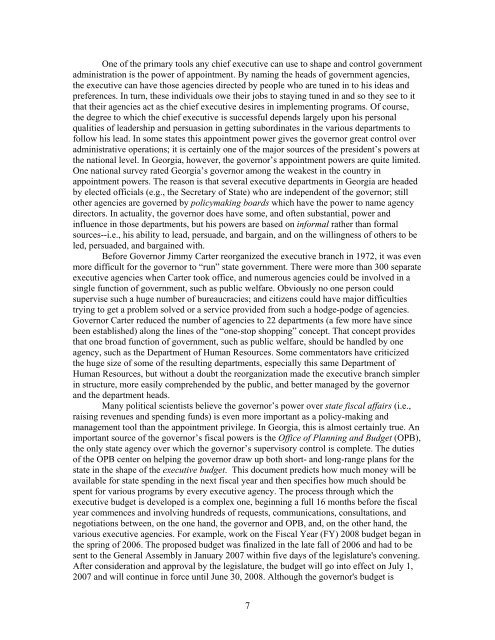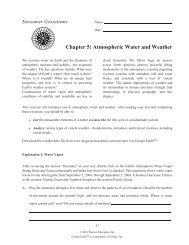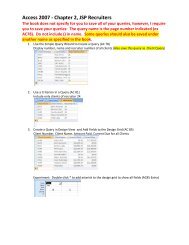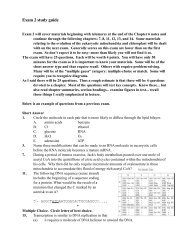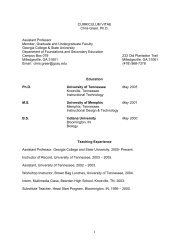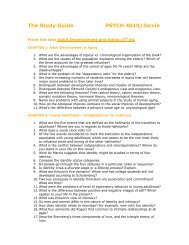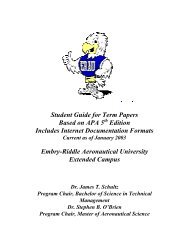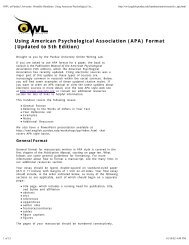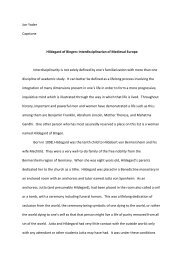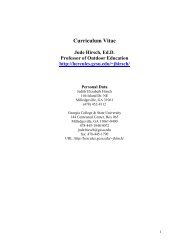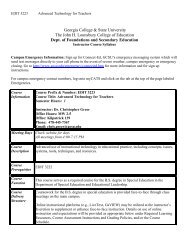THE GOVERNMENT OF GEORGIA
THE GOVERNMENT OF GEORGIA
THE GOVERNMENT OF GEORGIA
You also want an ePaper? Increase the reach of your titles
YUMPU automatically turns print PDFs into web optimized ePapers that Google loves.
One of the primary tools any chief executive can use to shape and control governmentadministration is the power of appointment. By naming the heads of government agencies,the executive can have those agencies directed by people who are tuned in to his ideas andpreferences. In turn, these individuals owe their jobs to staying tuned in and so they see to itthat their agencies act as the chief executive desires in implementing programs. Of course,the degree to which the chief executive is successful depends largely upon his personalqualities of leadership and persuasion in getting subordinates in the various departments tofollow his lead. In some states this appointment power gives the governor great control overadministrative operations; it is certainly one of the major sources of the president’s powers atthe national level. In Georgia, however, the governor’s appointment powers are quite limited.One national survey rated Georgia’s governor among the weakest in the country inappointment powers. The reason is that several executive departments in Georgia are headedby elected officials (e.g., the Secretary of State) who are independent of the governor; stillother agencies are governed by policymaking boards which have the power to name agencydirectors. In actuality, the governor does have some, and often substantial, power andinfluence in those departments, but his powers are based on informal rather than formalsources--i.e., his ability to lead, persuade, and bargain, and on the willingness of others to beled, persuaded, and bargained with.Before Governor Jimmy Carter reorganized the executive branch in 1972, it was evenmore difficult for the governor to “run” state government. There were more than 300 separateexecutive agencies when Carter took office, and numerous agencies could be involved in asingle function of government, such as public welfare. Obviously no one person couldsupervise such a huge number of bureaucracies; and citizens could have major difficultiestrying to get a problem solved or a service provided from such a hodge-podge of agencies.Governor Carter reduced the number of agencies to 22 departments (a few more have sincebeen established) along the lines of the “one-stop shopping” concept. That concept providesthat one broad function of government, such as public welfare, should be handled by oneagency, such as the Department of Human Resources. Some commentators have criticizedthe huge size of some of the resulting departments, especially this same Department ofHuman Resources, but without a doubt the reorganization made the executive branch simplerin structure, more easily comprehended by the public, and better managed by the governorand the department heads.Many political scientists believe the governor’s power over state fiscal affairs (i.e.,raising revenues and spending funds) is even more important as a policy-making andmanagement tool than the appointment privilege. In Georgia, this is almost certainly true. Animportant source of the governor’s fiscal powers is the Office of Planning and Budget (OPB),the only state agency over which the governor’s supervisory control is complete. The dutiesof the OPB center on helping the governor draw up both short- and long-range plans for thestate in the shape of the executive budget. This document predicts how much money will beavailable for state spending in the next fiscal year and then specifies how much should bespent for various programs by every executive agency. The process through which theexecutive budget is developed is a complex one, beginning a full 16 months before the fiscalyear commences and involving hundreds of requests, communications, consultations, andnegotiations between, on the one hand, the governor and OPB, and, on the other hand, thevarious executive agencies. For example, work on the Fiscal Year (FY) 2008 budget began inthe spring of 2006. The proposed budget was finalized in the late fall of 2006 and had to besent to the General Assembly in January 2007 within five days of the legislature's convening.After consideration and approval by the legislature, the budget will go into effect on July 1,2007 and will continue in force until June 30, 2008. Although the governor's budget is7


